Ready to be a business owner? Now is a great time to get going.
Many people feel it’s overwhelming to try and learn how to become an online seller. Here’s the truth: while it isn’t the easiest thing you’ll ever do, it can definitely be one of the most rewarding.
The biggest obstacle is taking the time to do your research and understand what’s required before you dive in. And then, you’ll need to use the old-fashioned “trial and error” method before you find success.
The name of the game is being prepared and ready for what’s in store. That way, you can be confident that you’re making great decisions that bring you closer and closer to your dream life .
That’s why I’ve outlined eight steps that will help you on your way to being an ecommerce entrepreneur. I’ve also included plenty of links to resources, guides, and articles you can bookmark for further reading on the topics we discuss here.
Let’s do this.



1. Find a Market Need to Fill
When it comes to starting an online retail business, you have a lot of options. A whole lot.
Before you dive in, make sure there’s a need in the market for the products you want to sell. Doing this research might seem time-consuming at first, but it’s a non-negotiable part of finding good online retail business ideas.
→ Click Here to Launch Your Online Business with Shopify
There’s no point in having a beautiful store if nobody makes a purchase, right?
There are loads of places where you can do market research to validate market need for your ideas and find inspiration for new ones.
Here are a few ideas:
- Google Trends
- Google Keyword Planner (you’ll need to open an Ads account, but it’s free!)
- Keyword Surfer , a Google Chrome plugin
- Searching product demand on social media and marketplace websites like Amazon and Alibaba
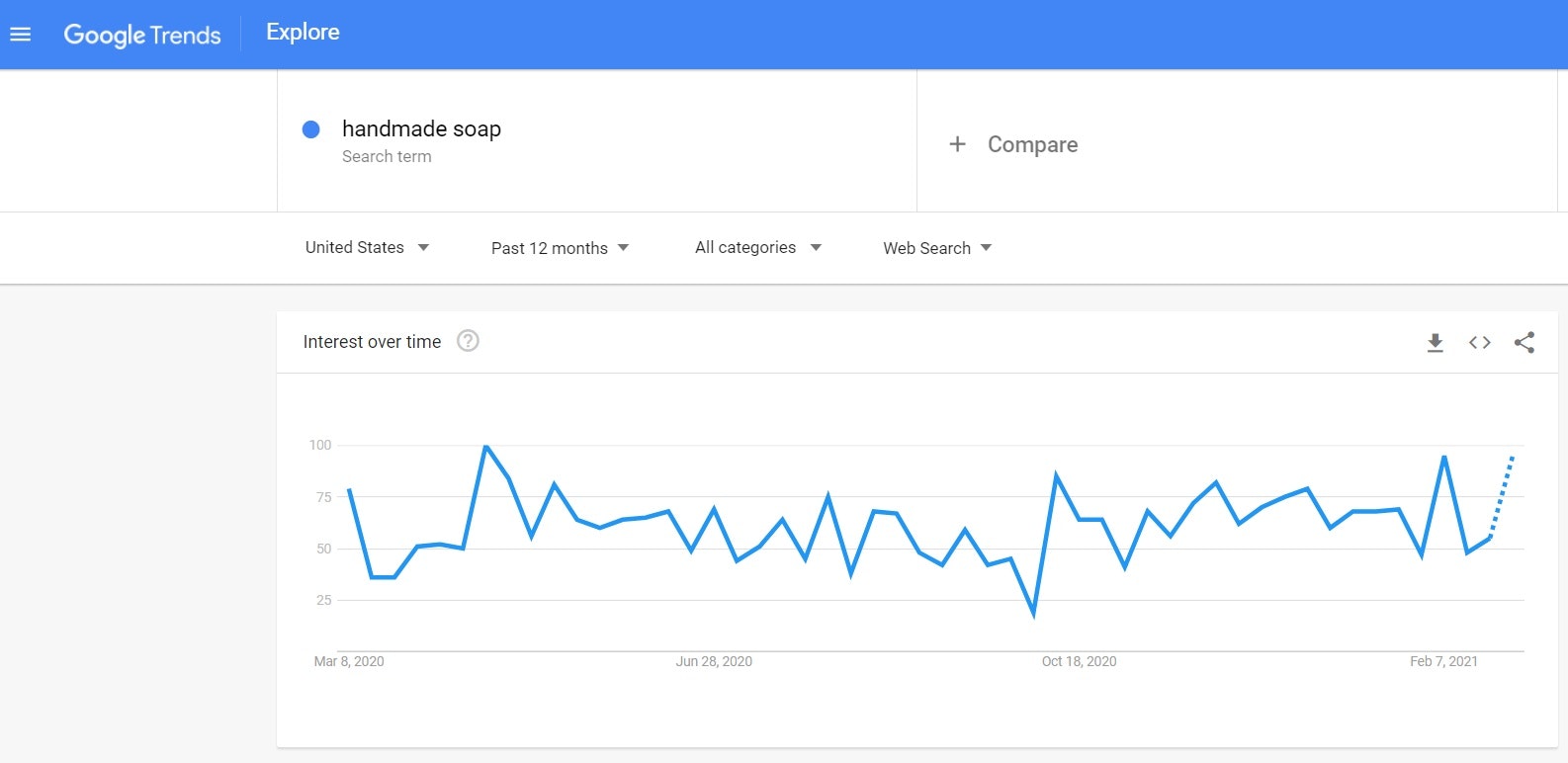
2. Get to Know Your Target Audience
No customers , no revenue. It’s a simple formula that everyone can understand. But what’s not so simple is figuring out how to find potential customers, get them to visit your online store, and convert them into paying customers.
There’s virtually an infinite amount of ways to make this happen. But it all starts with having a deep understanding of who your ideal customer is.
The main thing to understand is your customers’ pain points and needs. Once you know these, you can make sure that your online retail business is truly reliving those pains and solving those needs.
Facebook’s Audience Insights tool is an incredible resource, with a lot of user data and targeting capabilities to help you find your ideal customers quickly – even down the pages they like on Facebook. If you decide to run Facebook Ads , this tool will be a big help.
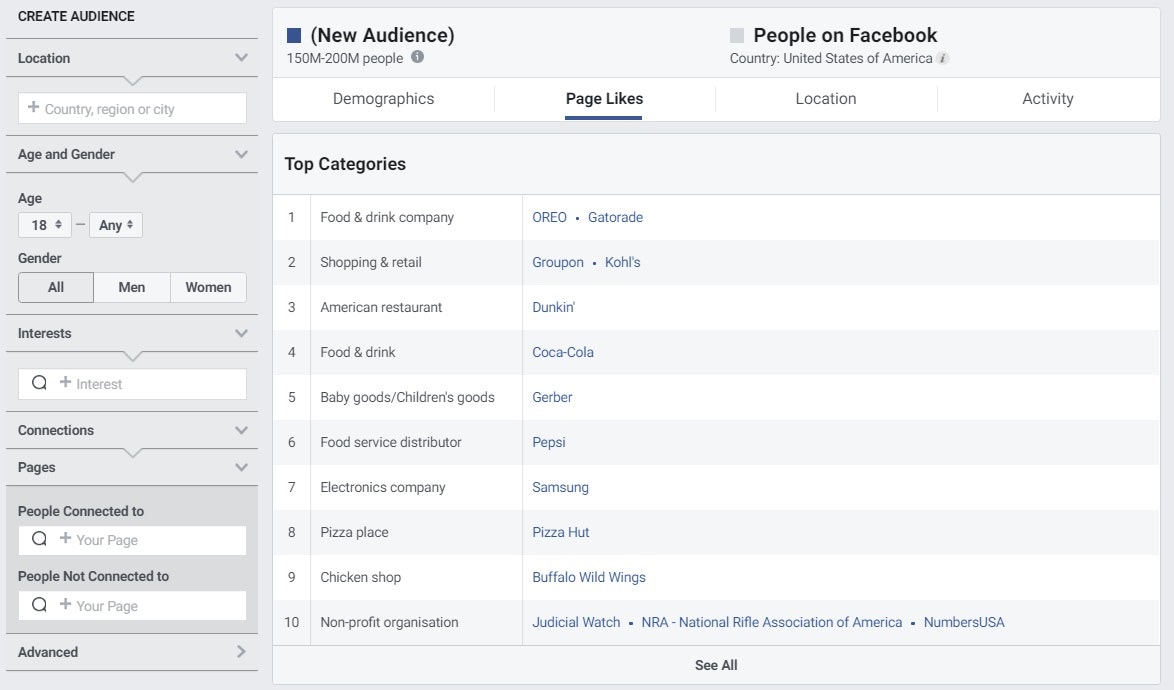
You can use other market research resources like D&B Hoovers , Nielsen , and the U.S. Census Bureau .
3. Research Business Logistics and Requirements
While it’s great for you to dream big about your online retail business opportunities, you also need to ground those dreams in reality.
There are several things for you to consider before you can be sure that your idea will work. Do some research to make sure you understand all the laws, regulations, resources, and logistics of your store idea.
Here’s a short list of things to look into:
- Business registration , licenses, and permits for your country or region
- Number of SKUs (stock keeping units) for your product line
- Shipping weight and costs
- Shipping restrictions for the types of products you want to sell
- Production costs and overhead
- Business and sales tax
- Trademark, copyright , and patent considerations
If you’re unsure of anything in particular, it wouldn’t hurt to seek out advice from a professional. Better safe than sorry, as they say.
4. Write a Business Plan
An online retail store business plan is a must-have. Creating a business plan will help make sure you’re looking at all the important parts and planning for them appropriately.
It’s also a great way to give yourself accountability and benchmarks. When you lay everything out, you’ll be able to know if you’re on the right path toward meeting your goals or if you need to make some changes along the way.
Here are some notes to consider when creating your online retail store business plan:
- Executive summary
- Description of the company
- Products and services
- Market and competitive analysis , including a SWOT analysis
- Sales and marketing plan
- Company management and operations
- Financial projections and requests for funding
Shopify has a great video tutorial on how to write a business plan . You can also check out our business plan template .
5. Find a Manufacturer or Supplier
If you’re interested in manufacturing your own products, you’ll need to find a trustworthy and reliable manufacturer.
Keep these considerations in mind as you explore your options:
- Domestic vs. overseas: Many online retail business owners choose overseas manufacturers to save on costs. But keep in mind that shipping times will increase, and it might mean a decrease in quality.
- Do your research: Search for a manufacturer on websites like Alibaba , or directories like ThomasNet , Kompass , and Sourcify . Find wholesale retailers on Alibaba. And of course, a Google search is always your friend.
- Ask questions: When you have your eye on a manufacturer for your online retail business, ask them any questions that come to mind. You should also check out their reviews and see if you can speak with any other customers with positive reviews (or negative ones… dun dun dun).
If you’re dropshipping, you don’t need to worry about designing, manufacturing, or storing your products. You’ll just need to find a supplier who’s willing to dropship their products directly to your customers. Find dropshipping suppliers on platforms like DSers.
6. Develop a Brand
Design and branding are the glue that holds your customer relationships together. It’s easy to think of branding as the last step – but don’t. It should be something you start thinking about even as you’re writing your business plan, before you start building your company.
Use this checklist to guide your branding process:
- Make a killer logo that sets your brand apart while still being simple and clean.
- Catch your visitors’ eye with stunning visuals, like product photography and illustrations.
- Use a color palette that compliments your brand’s personality. There’s a hidden psychology of colors and what they mean to us – use it to your advantage.
- Connect and build relationships with copywriting that speaks to your audience’s likes, needs, and wants.
- You brand is more than just a logo. Think about your broader brand strategy , like your company’s vision, mission statement, and the core values your company represents.
As you learn how to start an online retail business, you’ll come across a lot of inspiration from other brands. I suggest keeping a running list of companies that absolutely smash their branding and messaging, as well as companies who fail miserably.
Write down what you like and don’t like so you’ll have an idea bank as you build your own brand.
Check out Shopify’s free tools for brand-building on a budget, like their Logo Maker and Online Video Maker .
7. Build Your Online Retail Store
Now for the fun part! Bring all your ideas to life.
Sign up for an ecommerce platform like Shopify . If you’re dropshipping, you can also sign up for DSers, which was built to supercharge the whole dropshipping process on Shopify stores.
Here’s a checklist of things you’ll want to build out in your online store:
- Unique and engaging product descriptions for each item you sell
- Beautiful product photos for each item you sell
- Killer landing pages , like your website’s homepage and the pages you lead visitors to when they click your ads and other marketing materials
- Legal stuff: terms and conditions , privacy policy , shipping policy, and return policy
- Set up shipping considerations, like rates and zones
- Set up the checkout page and payment gateways
The cool thing about ecommerce platforms like Shopify is that there are plenty of themes, templates, tools, and resources to help you build a store, even if you’re not a professional web developer or designer (and you don’t have the extra budget to hire one right now).
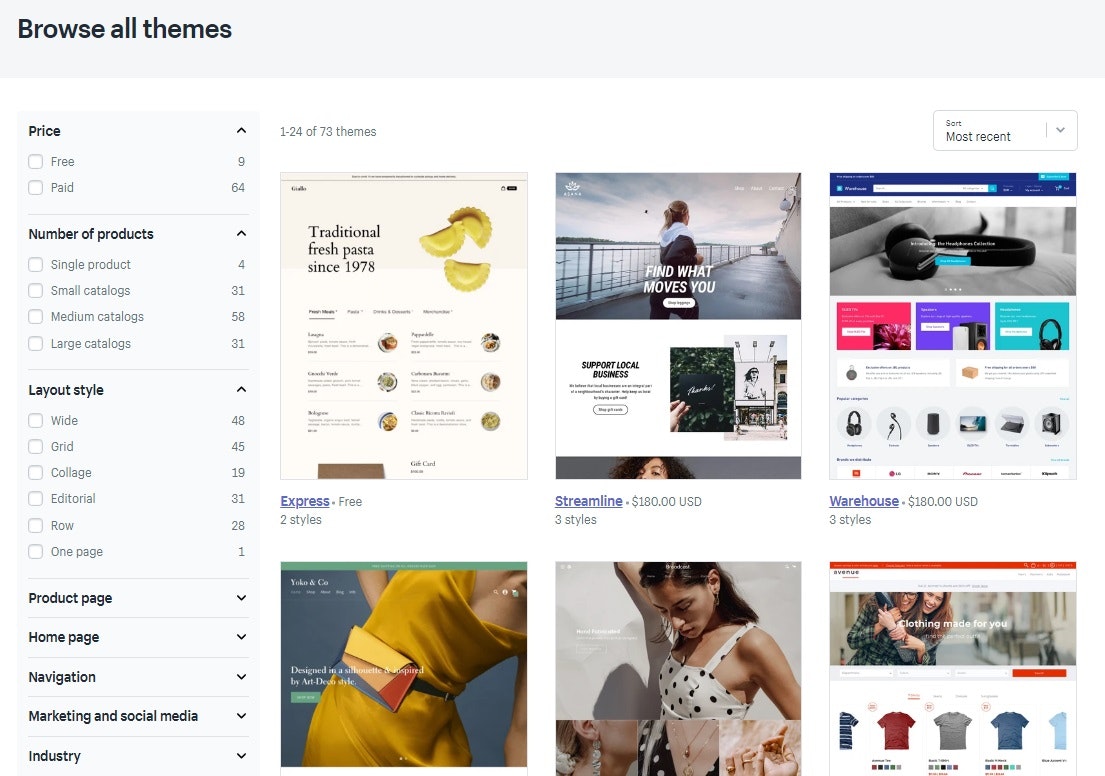
8. Create a Marketing Plan
One you have a store, the next step is to get people to it.
Your marketing plan can range from almost $0 to thousands of dollars. If you’re bootstrapping your business and aiming to start an online store with no money, there are plenty of low-cost and free ways to get exposure for your brand.
Email marketing is a great way to build long-term relationships with your subscribers. Just make sure you’re not spamming them with sale announcements. Try to add value to their day in a way that’s related to your brand.
Influencer marketing can be inexpensive if you choose to partner with “micro-influencers” instead of mega influencers who will charge big bucks. Micro-influencers will often post a shoutout for your brand if you send them free products to test out and have a photoshoot with. Instagram is a great influencer marketing channel.
Social media marketing is a way to build a following of engaged people, who might eventually turn into customers (if they’re not already). Post content that matches your brand image . And remember – add value to their life instead of only talking about your awesome products in every post.
If you have some budget to spend, Facebook Ads is a great place to start. Just keep in mind that it won’t happen overnight. If you have less than $500–$1,000 to spend, you might have trouble gaining momentum.
Online Retail Business Examples
Let’s look at a few examples you can use as inspiration as you learn how to start an online ecommerce store.
Tentree
Tentree is a great example of an online retail business that leads with branding. The company is driven by a social awareness mission to plant one billion trees by 2030. They even built the mission into their name: they plant 10 trees for every item purchased.
The brand also showcases their sustainable environmental and ethical commitments. On top of that, the site is filled with high-quality, often nature-inspired photography and images. All these elements create a trustworth and laid-back feel that matches the personality and passions of their target audience.
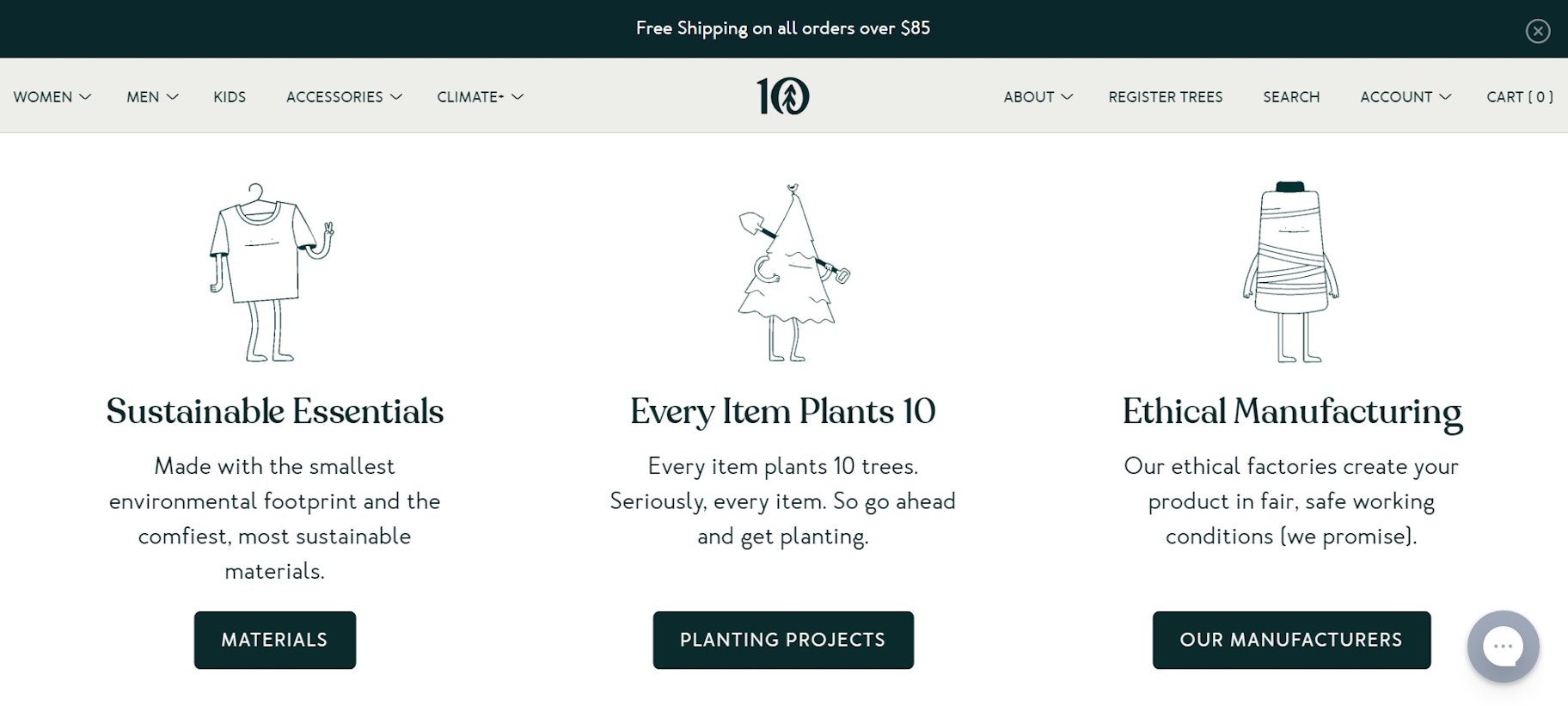
William Abraham
This store is a perfect example that you don’t need to sell a bunch of different products to be successful. William Abraham offers one thing: men’s luxury socks.
This type of niche strategy can help to simplify several aspects of your online retail business. For example, the audience is significantly narrowed in comparison to a general store that sells several types of products. This makes it easier to find your target audience and work on building a connection.
And the manufacturing and product management aspects of the business are less complicated too.
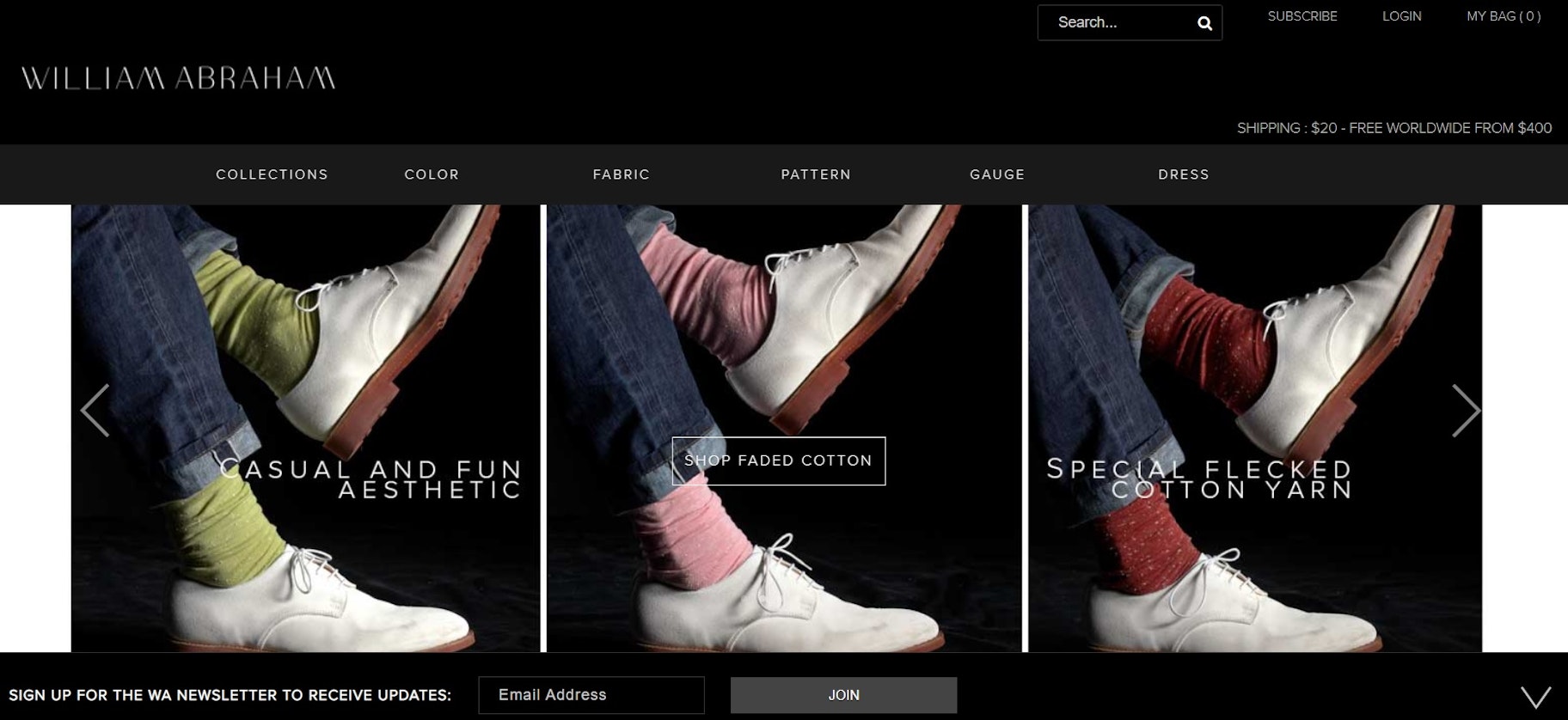
SoYoung
SoYoung has a unique offering: bags, packs, and coolers for stylish parents and their stylish children. It’s clever when you think about it: if you’re selling children’s products, your target audience is their parents (unless we have some incredibly digitally-savvy toddlers on our hands).
By offering products for children and their parents, SoYoung is offering a certain level of convenience that many stores don’t give their customers. Plus, the average order value is likely higher for this store, as many parents are shopping for more than one person.
And that means more revenue. Cha-ching.
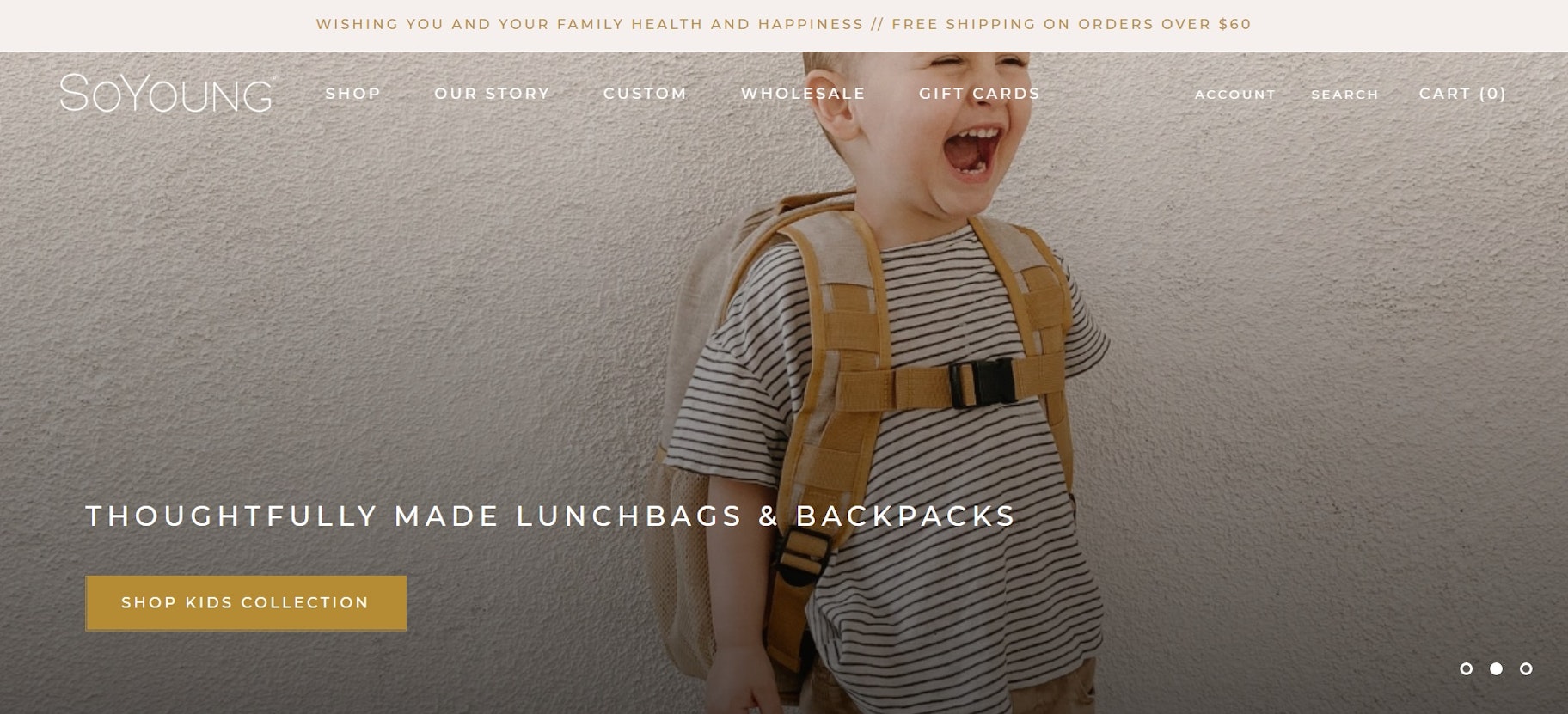
Taking the Steps to Starting an Online Retail Business
Learning how to start an ecommerce retail business is more attainable than most people think.
The most important thing to keep in mind as you make the leap is that it takes time and work to meet your goals. To be honest, it’s likely that you’ll fail in some way. Or many ways. (Just ask any ecommerce entrepreneur who has a success story to share.)
But as long as you have a mindset that’s focused on growth, learning, and resilience, you’re setting yourself up for success.
It might seem intimidating, but you’ll never know until you try. So go for it.



